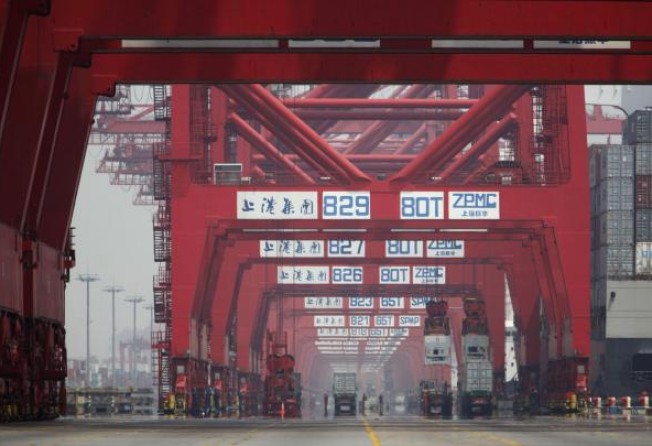China urged to allow transshipment of outbound cargo by foreign carriers
Mainland hubs stand to benefit if overseas lines are allowed to transship international cargo

Key mainland ports such as Shanghai could boost container volumes and revenues if they are allowed to let foreign carriers transship international cargo at Chinese hub ports, according to a senior maritime executive.
Tom Behrens-Sorensen, a co-founder and partner at Navisino Advisors (Beijing), said stakeholders including Shanghai International Port Group in Shanghai "have been lobbying for it to happen".
Under current cabotage rules, foreign shipping lines are banned from transporting domestic cargo, similar to the situation in the United States where the transport of domestic cargo to US registered ships is limited.
The mainland's cabotage regulations include moving international containers from ports such as Qingdao or Yantai and transshipping them through Shanghai for onward shipment overseas.
Behrens-Sorensen, a former regional chief executive and chairman of AP Moller-Maersk and has been a foreign adviser to several provincial governments, thought the change would bring economic benefits for ports and shipping lines. "The potential savings would run into billions of US dollars," he said.
Having talked to the heads of several major mainland ports, Behrens-Sorensen said several port chiefs felt a policy of allowing foreign transshipment made sense and a policy change was overdue. He added that while this would not happen next year, "I could see it happening long term".
Behrens-Sorensen said Shanghai's Yangshan port was an "obvious place to run trials where it could happen" because it was offshore and a controlled environment.
Container ships operating Asia-Europe services from Bohai ports such as Qingdao and Tianjin would be able to load US-bound cargo and transship it at Yangshan to North American services.
"Today they can't do that," Behrens-Sorensen said.
A change in policy allowing it to happen would generate increased operating efficiencies, cost savings and more frequent sailings, possibly boosting cargo throughput at ports and reduce logistics costs which are double that of Europe or North America.
Charles de Trenck, the founder of consultancy Transport Trackers, said transshipment had not been on ports' radar "because volume growth was so strong", but with throughput increases dipping below 10 to 15 per cent in recent years, "it is now making more sense as a complementary strategy".
The regional head of a leading international shipping line said: "The main beneficiaries of a change in this policy would be the Chinese terminals, which cannot really develop as international transshipment hubs."